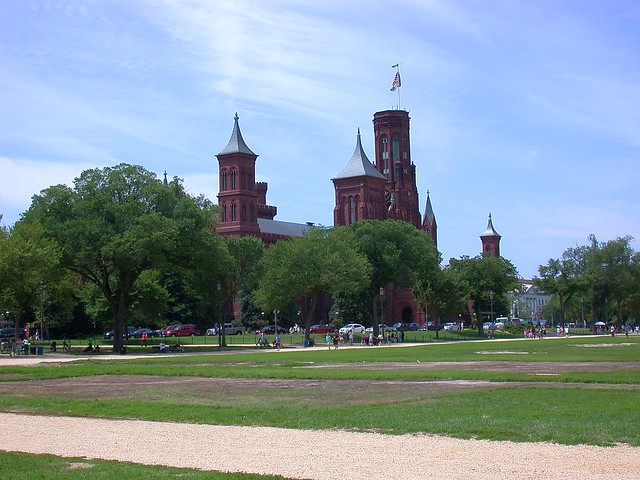
Smithsonian "Castle", the original Smithsonian Institution building
Many tourists who visit the city where I live are completely unaware of the many gardens that can be found in Washington, DC or the work that goes into them. Several different government agencies are responsible for the various gardens, many of which deserve to be tourist attractions in their own right. Among these are the gardens on the grounds of the Smithsonian Institution's museums on the National Mall. The Smithsonian has its own horticultural division, Smithsonian Gardens, and the gardens staff do a wonderful job planning, planting and maintaining these gardens for the public to enjoy.*
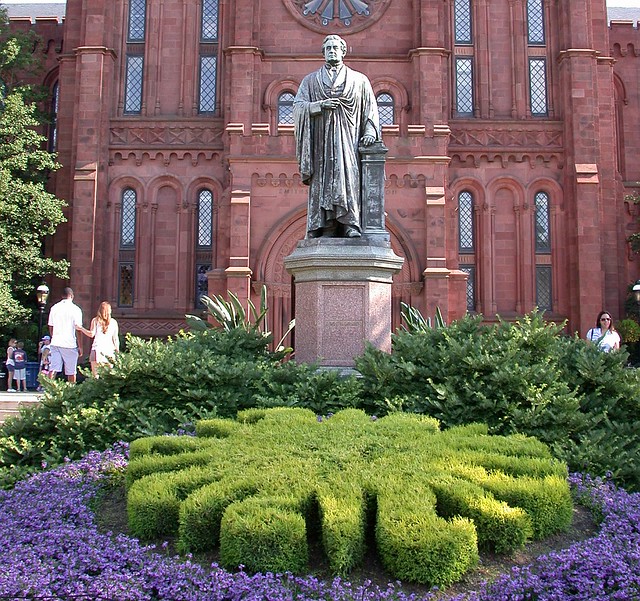
James Smithson
The stated mission of Smithsonian Gardens is to "enrich the Smithsonian experience through exceptional gardens, horticultural exhibits, collections, and education." All of these gardens are open to the public, free of charge, every day of the year. Many of them are easily missed if you don't already know they are there, but they are all worth seeking out. Please check back later for part 1, the gardens around the National Museum of Natural History (including the Butterfly Habitat and Urban Bird Habitat gardens); part 2, the Mary Livingston Ripley Garden; and part 3, the Enid A. Haupt Garden. Links below will go to each section as I finish the blog posts.
Part 1: National Museum of Natural History gardens
Part 2: Mary Livingston Ripley Garden
Part 3: Enid A. Haupt Garden
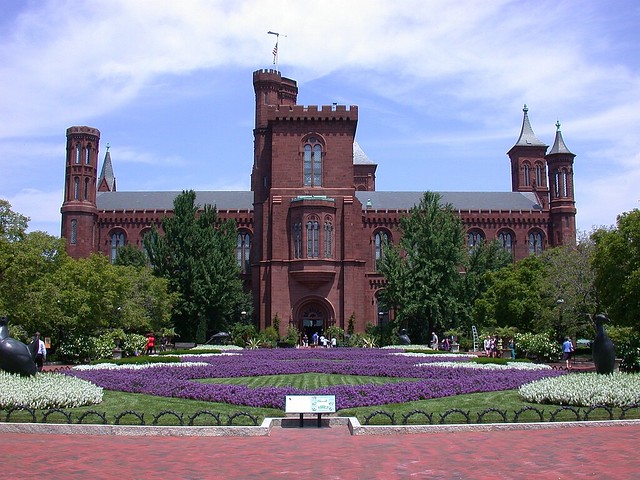
Smithsonian Castle and Enid A. Haupt Garden
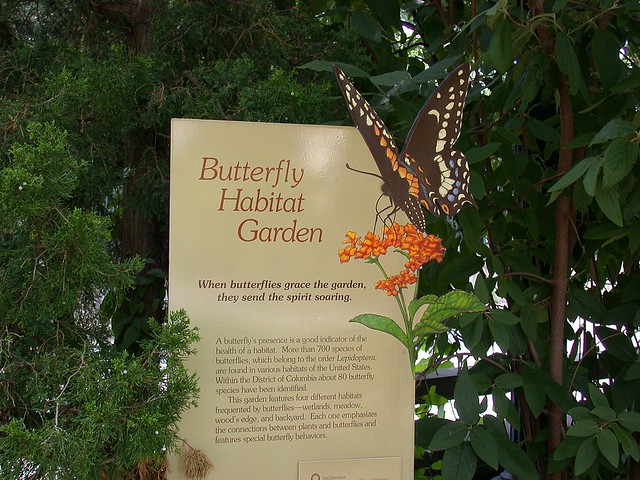
Butterfly Habitat Garden, National Museum of Natural History
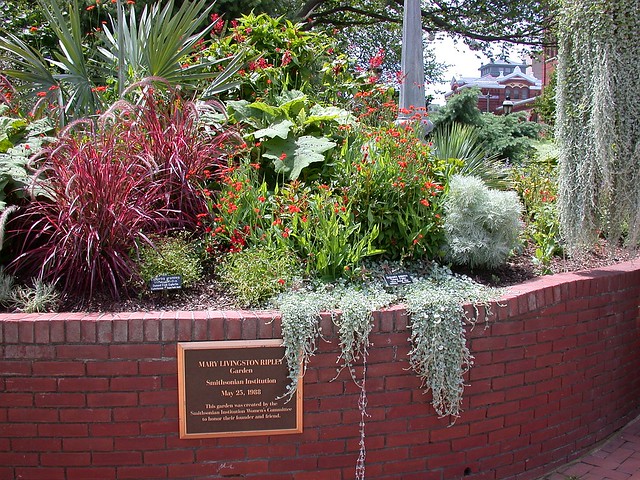
Mary Livingston Ripley Garden
These blog posts barely scratch the surface and these photos represent only a small fraction of the Smithsonian's gardens! The Freer Gallery of Art has a beautiful sheltered courtyard planted in a rather formal style. I also haven't mentioned the National Air and Space Museum, where a windmill palm (Trachycarpus fortunei) that was planted in 2000 is recovering from our recent cold winter. More on that in a future blog post devoted to hardy palms! Away from the National Mall, the National Zoological Park ("National Zoo") is a horticultural as well as zoological delight. Smithsonian Gardens also has production greenhouses in Suitland, Maryland where many seasonal plants are propagated, tropical plants are overwintered, and a simply fabulous orchid collection is maintained. These production facilities are not open to the public.
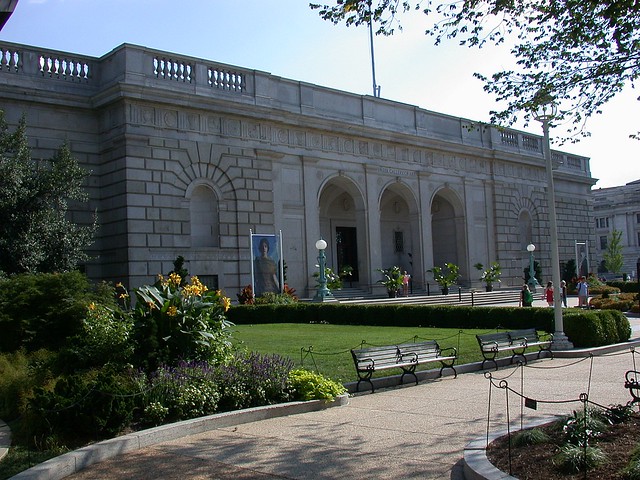
Freer Gallery of Art
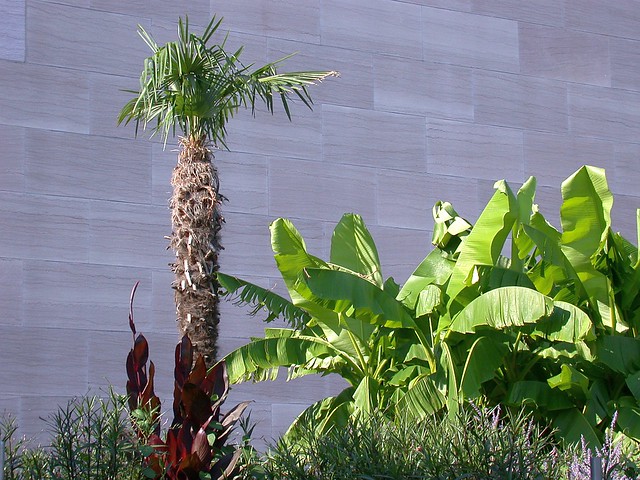
Windmill palm (Trachycarpus fortunei) and hardy bananas (Musa basjoo), Air and Space Museum
Finally, two major gardens bear mentioning, not because they are part of the Smithsonian Institution but because they are often mistakenly thought to be: the United States Botanic Garden (also on the National Mall) and the United States National Arboretum (in northeast DC). We are truly privileged to have such an abundance of public gardens in this city!
Click here to jump to Part 1: National Museum of Natural History gardens
For more information:
Smithsonian Gardens website
Map of Smithsonian Gardens on the National Mall
Smithsonian Gardens on Facebook
Smithsonian Gardens blog
Smithsonian Gardens Youtube channel
Smithsonian Gardens on Twitter
* Disclaimer: I work for the Smithsonian Institution, but not for Smithsonian Gardens. I know several of the gardeners but the purpose of this blog post is simply to share my appreciation of these wonderful gardens!
Did you like this post? Please click on the share buttons below to share on Facebook, Twitter, or Pinterest!

Looking forward to them John!
ReplyDeleteHit a couple of snags putting part 1 together, but I just got the last couple of photos I need and hope to get it posted by Saturday morning!
DeleteI knew you would eventually get to find the palms and bananas.
ReplyDeleteRay
Hi thanks for shaaring this
ReplyDelete